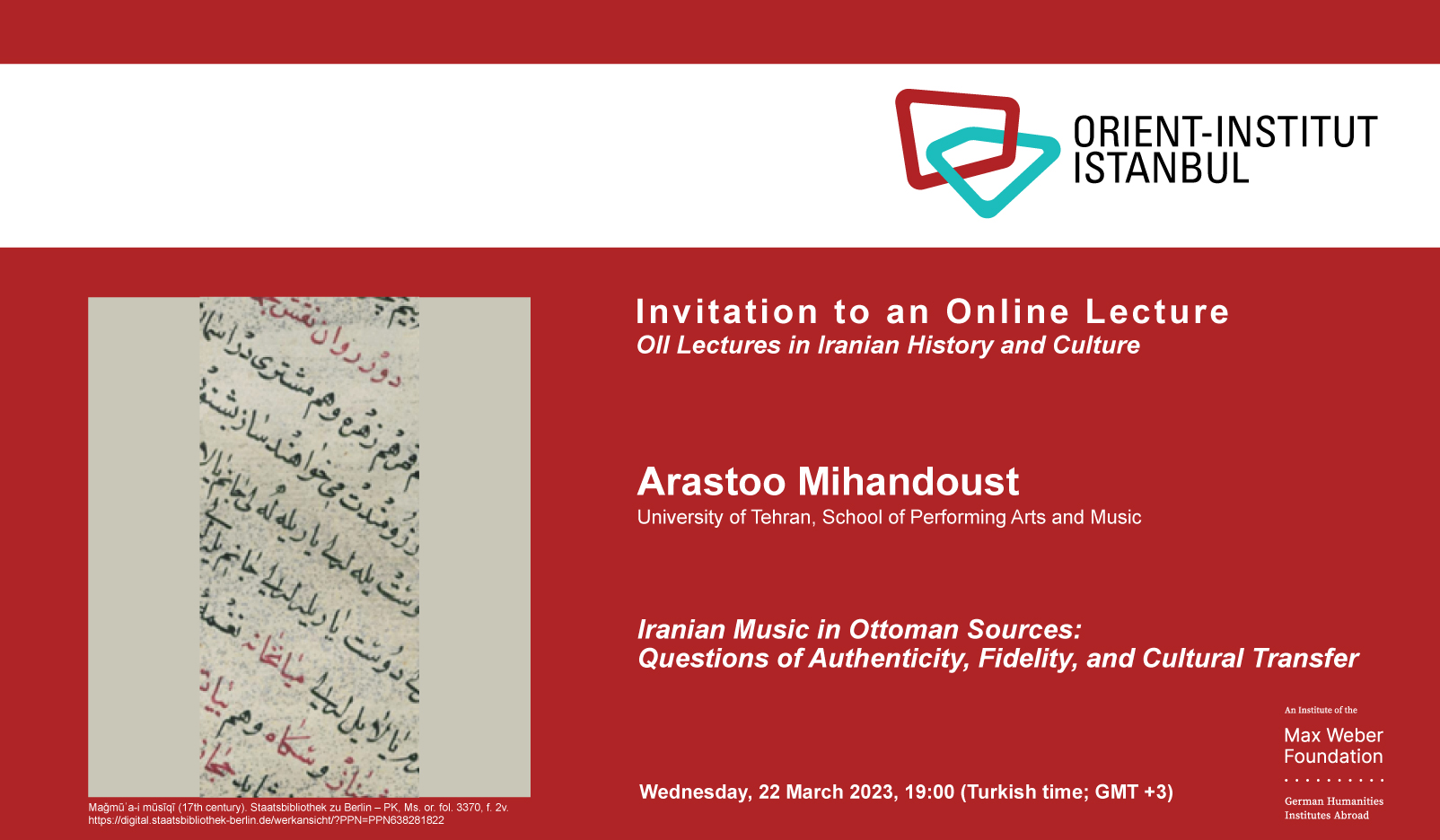März, 2023
Details
To attend this online lecture, please register here: https://eu02web.zoom.us/meeting/register/u5wqde-hrT4qGNGgbMI21ciNylEyLdUgkpRj Invitation to an Online Lecture - OII Lectures in Iranian History and Culture Iranian
Details
To attend this online lecture, please register here:
https://eu02web.zoom.us/meeting/register/u5wqde-hrT4qGNGgbMI21ciNylEyLdUgkpRj
Invitation to an Online Lecture – OII Lectures in Iranian History and Culture
Iranian Music in Ottoman Sources:
Questions of Authenticity, Fidelity, and Cultural Transfer
Arastoo Mihandoust
University of Tehran, School of Performing Arts and Music
Wednesday, 22 March 2023, 19:00 (Turkish time; GMT +3)
The seminar investigates the early history of the migration of musicians and repertoires between Timurid Iran and the early Ottoman Empire on the basis of song-text collections (maǧmūʿas) and teḏkires (biographical dictionaries). In the Safavid-Ottoman song-text collections from the late 17th and early 18th century onwards, a certain group of compositions attributed to the Timurid masters of the 15th and 16th centuries can be regularly identified, together with a distinct awareness for the distant and different nature of this repertoire. The presentation aims to show that some of these compositions indeed stem from vocal compositions that in older sources are attributed to various composers such as Ṣafī ad-Dīn ʿAbd al-Muʾmin, ʿAlī Sitāʾī, Khwājah, Amīr Ġaḍanfar, Şams-I Rūmī, Hajjī Dadah, Ġulām Şādī, ʿAlī ʿAwwād, Ḥaydar Tūnī, and Şāh Pīlahdūz, thus indicating that actually old songs were still sung in the Safavid and Ottoman courts long after the names of most of these composers were forgotten, when they were misattributed to ʿAbd al-Qādir al-Marāġī and al-Fārābī. This study suggests that the capture of several Iranian musicians by Sultan Murād IV contributed to the survival of these works in the Ottoman repertoire. In conclusion, it seems that some of the compositions that were sung in different cities of Iran during the late Timurid and early Safavid periods, were transferred to the Ottoman courts and underwent some changes over time.
Arastoo Mihandoust is a pianist, ud player, composer, and ethnomusicologist whose research is currently focused on the Safavid-Ottoman Musical repertoire and how the two traditions stemmed from common origins. In addition to a B.S. in Materials Science and Engineering from Tabriz University (2013) he holds a M.A. in ethnomusicology from Tehran University (2021). His research aims to put the current Iranian traditional music practice in historical context.
Zeit
(Mittwoch) 19:00

